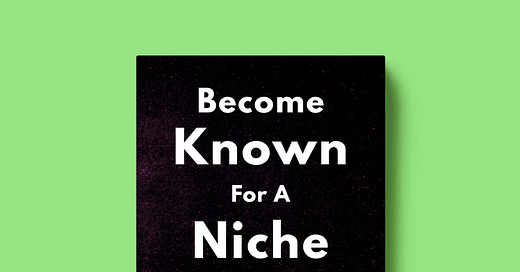Become Known For A Niche You Own: Why Legendary Writers Use Languaging To Design New & Different Categories (Part 2)
Most writers spend their entire careers thinking in the context of “better.”
Arrrrr! 🏴☠️ Welcome to a 🔒 subscriber-only edition 🔒 of Category Pirates. Each week, we share radically different ideas to help you design new and different categories. For more: View the mini-book archive | Listen to another category design jam session | Dive into an audiobook | Enroll in the free Category Accelerator email course





